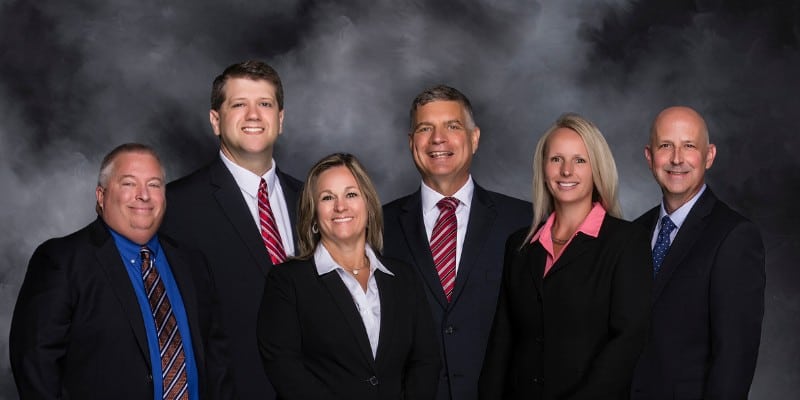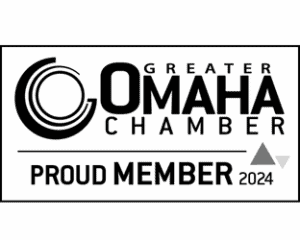If you search online for a highly-rated financial advisor in Omaha, you will find reviews by such firms as AdvisoryHQ. We are pleased that America First is often included.
Some of these reviews give great weight to how much money the financial advisor manages. Others look at more important details, such as the qualifications of employees and how the advisor is paid. All of these factors are important, but there’s another way to look at it, too.
Will Your Financial Advisor Be a “Big Producer” or a Craftsman?
There are people in every business who measure success by how much revenue they produce. They figure the customer knows enough to look after his own interests, and if he can be talked into buying something that’s more than he needs, well – that’s just good marketing.
But there are others who take pride in doing good work, even if it means they can only work with a limited number of clients. At the end of the day, they feel good knowing that they have treated others fairly. Craftsmen are like this.
We like to think we are, too.
So, What’s Our Advice?
You’ve worked hard, watched expenses, and built savings. Congratulations on your success!
Our advice is to start with a simple financial outline. Later, you may want a comprehensive financial plan, which we can also provide. But a simple outline gets the ball rolling. It’s do-able. It also goes a long way toward getting you where you want to go.
It’s hard to beat our QuickStart for simplicity. We’ll help you consider your goals and savings plans, estimate your future income and expenses, understand investment risk, and see that important paperwork is up-to-date.
Your QuickStart becomes a key part of the relationship we have with you. It is the foundation of the investment strategy we use, the periodic portfolio review we have with you, and the answers we provide when you have questions.
Guidance That Puts You First
We keep it simple: Our guidance to you will be the same that we’d give to a member of our own family.

One thing is clear: Your interests must come first. Unlike the typical financial advisor in Omaha, we sell no financial products. We don’t face a conflict between doing what’s right for a client and selling what pays us a big commission. Instead, our guidance will be tied to your QuickStart, which considers your assets, income, goals, and willingness to accept risk.
If your QuickStart calls for a conservative asset mix, we’ll see that you own a good amount of fixed-income and money market investments. If your goal is to grow your assets and you’re able to accept some volatility, we’ll include more stocks.
Unlike the typical financial advisor in Omaha, we do our own investment research and management. We have strict criteria for what we are willing to buy for our clients. Our guiding principle is that our clients must receive a return over the long run that rewards them for the risk they take when investing.
What Other Financial Advisors in Omaha Do
So, the guidance you get from us will be the same we’d give a member of our own family, and we do our own investment research and management.
Sounds simple. It is simple.
It’s also uncommon.
It’s more typical for advisors to operate in a way that provides them the best payoff.
The typical advisor in Omaha begins, as we do, by developing a financial outline for each client. But what they do next is not what we do.
Their first step will be to “insure your future” by selling you an annuity that is guaranteed by an insurance company. They will recommend this as the safe way to provide you with an income stream to pay your monthly living expenses.
Their next step will be to outsource some or all of the management of your assets. In other words, your advisor will choose investment managers to look after the investments you will have in stocks, fixed income and other assets.
Advisors who outsource will say – truthfully – that they are not investment experts. They will say that their role is to maintain your strategy, cover your need for guaranteed income, and hire the experts who will manage your assets.
Whose Interests Come First? Yours or Your Advisor’s?
The fact that the typical advisor does business this way shows that it has some appeal. It is better to have a strategy than not to have one, and the guidance of a financial advisor may produce better results than a person would get on their own.
But you may see some problems:
Is An Annuity Really the Answer?
People like the idea of guaranteed income. They want security. They want to have something that will hold its value when markets are volatile. However:
- Annuities can be very expensive and contain lock-up periods that restrict access to your money.
- The guarantee on an annuity is only as good as the financial strength of the insurance company. Your premiums and benefits can change for the worse, jeopardizing the security you were counting on.
- Advisors who sell annuities may be paid high commissions. That money is technically paid by the insurance company that issues the annuity contract, but they recover that cost from you.
A good advisor will tell you that there are other ways to provide guaranteed income. For example, you can get income with the best credit guarantee by owning US Treasury securities and FDIC-insured certificates of deposit. These are available at low cost and don’t tie up your money.
Other Issues
- Can you trust your advisor’s judgment about investment managers? After all, advisors who outsource admit that they are not investment experts. But how can they claim to know which investment managers will do a good job? As a practical matter, advisors may simply pick managers who have done well lately. If such success is due to luck, how well do you suppose your portfolio will do over the long-run?
- Can you really know what you own? The advisor who outsources won’t know much about the investments that are being made for you. For example, they may know that part of your portfolio is invested in large US-based companies, but they won’t know much more. Is the manager taking too much risk or overpaying for investments? The advisor won’t know.
Outsourcing Works for Them
If it’s not clear that this business approach works well for clients, there is no question that it works for these advisors. Outsourcing frees up time so that they can look for new clients and sell more annuities.
We think our way of doing business is better. We provide the same advice we’d give a member of our own family, and we do our own investment research and management.
QuickStart
For most people, getting the basics right will go a long way toward helping them achieve their goals. For our clients who need help developing a financial strategy, QuickStart is about as easy as it gets.
Conventional Financial Planning
If you were to work on a plan with a typical financial advisor in Omaha, the process would go something like this:
- Determine your goals.
- Project income, expenses and savings from now until a specific date.
- Estimate the rate of return you expect on savings.
- Calculate expected wealth and compare it to what your goals require.
- Make adjustments as necessary.
Problems with Conventional Planning
- It’s time-consuming. Getting account statements, tax returns and other documents takes work. But these are required for an approach that stresses accurate and detailed projections. Setting your goals far into the future is hard. Do you know when you will retire, where you will want to live and what you will want to do?
- Careful estimates must be made. If it’s hard to set goals, it’s even harder to estimate future living expenses. And what rate of return on savings will your advisor assume?
- Results must be interpreted carefully. Spreadsheets, graphs and charts can give a false sense of precision. As soon as one figure changes, your expected wealth and income will change, too. Forecasts include a lot of guesswork.
- You may not be comfortable with your advisor’s recommendations. After creating a plan, an advisor will offer an investment strategy to help meet your goals. This can lead to questions that make people reluctant to follow through.
Questions That Might Make You Pause
- Are these recommendations being made because the advisor is going to be paid a big sales commission?
- Am I confident that this advisor understands investing? Do they outsource this to others and focus on selling?
- Am I sure my goals are what I really want? Conventional planning may take goals for granted and move too quickly to making estimates, projections and complicated reports.
The QuickStart Solution
QuickStart is our streamlined approach to a realistic financial strategy. The focus is on moving you in the right direction and making adjustments as your goals and circumstances change.
We begin by looking at your current financial position – your savings and income. We’ll spend time discussing your goals and maybe help clarify what you are working toward.
Together, we will develop an understandable saving and investment strategy that makes you comfortable.
Through periodic portfolio reviews, you’ll see how you’re progressing toward what you want. If your situation changes, we’ll discuss how your strategy may need to change.
QuickStart Benefits
In addition to being realistic and do-able, QuickStart:
- Keeps the focus on long-term goals. Your aim is not to speculate on the next hot stock or even to beat the market averages. It’s to work toward achieving your goals.
- Takes some of the emotion out of investing. The financial markets move sharply at times. Headlines can make people think the sky is falling and that they should sell everything to preserve what they have. But QuickStart provides a useful perspective. You may see that even if the value of certain investments falls, your total financial position may not change much. Your income and goals may not even be affected. Knowing this can help calm your nerves and enable you to stick with your strategy.
- Helps prevent “The Big Mistake.” Author and financial planner Carl Richards says that a key role of a financial advisor is to keep their clients from making “The Big Mistake” – a decision that will derail them from achieving their goals. It’s easier to stay with a strategy that makes sense. Our clients can understand what they own and why. When they have questions, they can ask us, knowing that we make investment decisions in-house.
QuickStart will help most people. It can also serve as a starting point for a comprehensive financial plan. Both Matt and Katerina are CERTIFIED FINANCIAL PLANNER™ professionals and are well-qualified to do such detailed plans.
How We Work With You
It begins with a phone call from you.
Not to a call center. We don’t have one of those and never will. We value relationships, not transactions. Maybe that’s another Omaha thing.
We’ll schedule a get-acquainted meeting, whether at our office in Regency or maybe at your favorite coffee shop. You can meet Dave or Katerina and hear more about what we do. We’ll ask about your situation and see how we might be able to help.
If you like what you hear, we’ll gather information that will be used to create your QuickStart. We’ll help you open an account at TD Ameritrade or Charles Schwab, which will serve as your custodian. They will provide safekeeping of your assets, process our buy and sell orders, and provide certain accounting and reporting services.
We’ll also have you sign an investment management agreement that grants us the authority to manage your investments for you.
Once your account is open, we’ll help you transfer assets into it. We will then build an investment portfolio consistent with your QuickStart.
Keeping You Up-to-Date
Each quarter, you will get account statements from us, and we’ll deduct one-quarter of our annual management fee. This fee is our only source of income.
Each year, we’ll schedule a portfolio review with you, whether in person or by phone. This is an opportunity to see the progress you are making, update information, and discuss possible changes.
At any time, of course, you are welcome to call us with questions. Here are a few we are often asked. Maybe they sound familiar?
- How do I replace the income I’ve been getting from work?
- What if anything should I do with my 401K plan?
- How do Required Minimum Distributions (RMDs) work?
- When should I begin taking Social Security?
- How do I see to it that I don’t outlive my assets?
- How can I lower my tax bill?
Our Investment Adviser Brochure has more information about how we work, including our fee schedule.
Providing for the Next Generation
Would you like to help the next generation?
If so, your investment time horizon may be much longer than you realize.
Your first thought when looking to the future is to make sure that you have enough money to live on. When you’re satisfied that the needs of your immediate family can be taken care of, you may think of providing for the next generation.
Do you want to provide for children or grandchildren? Is there a charity, place of worship, or a cause you would like to help?
If so, one of the goals of your QuickStart will be to provide such support. Your investment strategy will take this into account.
Is Your Paperwork Up-to-Date?
We’ll also help you by checking to see if your paperwork is up-to-date for beneficiaries, powers of attorney, and estate plans. We can coordinate with your tax and legal advisors. We can even bring in such help if you need it.
Beyond the Strategy & Paperwork
There’s no denying that it’s good to have a sound investment strategy and to make sure your paperwork is in order. But it’s a comfort to know that we can continue to provide advice to your spouse or children if anything should happen to you.
How We Invest for You
Your QuickStart is a key element in how we invest for you. It leads to a personalized investment strategy in which we recommend a mix of stocks, fixed income securities and money market assets to help you toward your goals.
What Do We Look For In An Investment?
Our guiding principle is that our clients must receive a return over the long run that rewards them for the risk they take when investing. Market prices don’t always reflect a rational estimate of value. Emotional investors can carry prices to extremes. Optimism can lead to prices that are too high, while pessimism can lead to prices that are too low.
It’s not just individual investors who cause these price swings. Professional investment managers are emotional, too. They fear that they will be fired if they don’t keep up with the market averages. This can make them focus on unpredictable short-term factors. That’s not a winning strategy.
We like to take advantage of irrational prices. If the stock market value of a business we own is too high, we’ll sell. When a business we like is trading at a bargain price, we’ll buy.
But What Do We Want to Own?
When investing in bonds, you are lending money to a borrower. This means you should be paid for taking credit risk and the risk that inflation will erode your purchasing power.
When buying stocks, you are buying ownership interests in real companies. We want to understand what these businesses do, how profitable they are likely to be, and how skilled their management teams are. We also want to pay prices for them that are reasonable.
All of this means we’re very selective. Few companies meet our criteria. Though Wall Street promoters never tire of offering new concepts, we do our own research and stick to what makes sense to us.
It’s Smart Investing
Our selective approach means that we will be out of step with the market at times. That’s OK with us. It’s more important to stick with the guiding principle of being paid for taking risk.
Studying a Retirement Plan Rollover?
Are you thinking of retiring? Wondering what to do with the savings you have in your retirement plan at work?
Some plans allow you to remain invested after you retire. Others require that you either take a distribution of your savings or find another home for them, such as in an Individual Retirement Account.
What to do is a big decision, and it makes sense to get some help. Misunderstanding can lead to unnecessary taxes, penalties and additional costs.
We can help.
It may make sense for you to remain in your current plan, assuming that’s an option. Alternatively, you may want the financial planning and investment management that a firm like ours can provide.
We’ll help you weigh your options, and we’ll provide guidance that best serves your interests.
Your Financial Advisor in Omaha
Our company was founded in Omaha in 1994. Today, we are an employee-owned firm with offices in the Regency One Building. At December 31, 2019, we managed $399 million, mostly for individuals and families.
We are a financial advisor from the Old School. Unlike others, we do our own investment management and research and give clients the same advice we’d give a member of our own family.
Another difference: We don’t sell annuities or any other products that might conflict with the best interests of our clients. A management fee is our only source of income.

Your team at America First Investment Advisors has a lot of experience. All of us work together to help each client. Learn more about us here.
You can read our Insights blog for financial planning tips, investment analysis and news about our company.
To learn more or to schedule a meeting, give us a call at 402-991-3388.
Barry Dunaway, CFA®
Managing Director
America First Investment Advisors, LLC
This post expresses the views of the author as of the date of publication. America First Investment Advisors has no obligation to update the information in it. Be aware that past performance is no indication of future performance, and that wherever there is the potential for profit there is also the possibility of loss.



